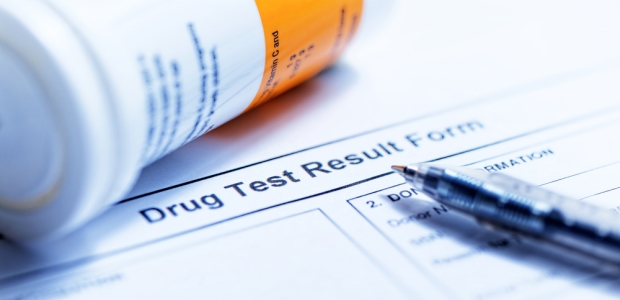
The Value of a Medical Review Officer
Of all the service agents involved in the testing process, the MRO bears the most significant responsibility for the accuracy and integrity of the testing process.
- By Nicole Nance
- Jun 01, 2019
Ideally, a business' drug and alcohol testing program is mostly unseen, running in the background to keep employees safe and the company protected. Workers get tested and results most often go to the human resources professionals, who process them accordingly.

Drug testing companies, especially those that offer mobile on-site drug testing, help their clients keep things moving with minimal interruption. However simple they make the process seem, there's a great deal going on behind the scenes to ensure the testing process is handled with impartiality and the utmost professionalism.
One significant member of a company's drug testing team is the Medical Review Officer (MRO). This medical professional is responsible for safeguarding the integrity of each testing sample. While drug testing companies rely on their collectors to obtain the specimen and laboratories to examine samples through forensic toxicology, respectively, the MRO is responsible for reviewing the process in its entirety and following it through to completion.
What Qualifications Are Required of the MRO?
Before pursuing a career as an MRO, a person must first be a physician holding licensure as a Medical Doctor (MD) or Doctor of Osteopathy (DO); however, being a licensed physician is not all that's required for becoming a professional MRO.
To gain certification from the Medical Review Officer Certification Council (MROCC)—the gold standard within the profession—a physician must first complete an approved MRO training course.1
These courses are provided by institutions such as American College of Occupational and Environmental Medicine2 and American Osteopathic College of Occupational and Preventive Medicine.3
Upon completing a thorough training course, the physician is then eligible to take an exam administered by the Medical Review Officer Certification Council. If the individual passes the exam, only then is the physician awarded his or her MRO certification. Requalification training is required of all MROs, generally every five years, after which the MRO must successfully complete a competency exam like that required in the beginning. These steps help ensure Medical Review Officers remain well equipped and prepared to handle all of that which is required of them by the U.S. Department of Transportation (DOT).
To What Degree Does the MRO Impact Workplace Drug and Alcohol Testing?
Of all the service agents involved in the testing process, the MRO bears the most significant responsibility for the accuracy and integrity of the testing process. Their tasks include acting as a liaison with the SAMHSA-certified lab4 that performs their testing, monitoring the processing of specimens, and following up with other medical professionals to complete their analysis.
MROs must follow a number of regulations5 in order to maintain compliance with federal standards while working with agencies that fall under the authority of DOT.
Responsibilities of a medical review officer per 49 CFR Part 40.123:
- Acts as a gatekeeper for the accuracy of the drug testing process;
- Ensures integrity of the testing process, including quality assurance reviews of specimen collections and external lab certification and reliability;
- Communicates any service agent performance issues with employers, collection sites, and laboratories;
- Collaborates with the Office of Drug & Alcohol Policy & Compliance (ODAPC) and/or DOT agencies, as needed;
- Facilitates the timely processing of test results reporting;
- Reviews laboratory results;
- Evaluates medical explanations for non-negative findings;
- Investigates and intervenes with drug tests resulting in canceled, adulterated, substituted, or invalid findings, including problems with blind specimens;
- Protects the confidentiality of the drug testing information; and
- Perform all functions in accordance with DOT regulations.
Is the MRO Responsible for Verifying Prescriptions?
One of the more critical aspects of an MRO’s job is to verify6 an employee's claim that he is taking a medically necessary medication and that this substance is what caused the non-negative drug test result.
In these cases, the MRO will conduct a verification interview with the employee, at which time the employee must provide contact information for the physician who prescribed the medication and the pharmacist who dispensed the prescription.
The MRO then contacts the dispensing pharmacist to obtain proof that the prescription was legally dispensed to the employee. If the MRO is suspicious of the situation, the Department of Transportation encourages him or her to contact the employee's licensed, reporting physician.
In this function of their role, MROs are verifying the honesty of the employee's claim. If it is found to be accurate, the MRO reports the test result as Negative. If the MRO cannot verify the employee's claim, the test result will report as Positive. Regardless of the finding, the written test result will include a statement from the MRO such as, "interview conducted" or "interview conducted, and documentation processed."
In a few instances, the employee has the opportunity to provide the MRO with the information requested after the MRO has issued a Positive test result. This scenario often applies to post-accident testing where the employee suffered significant injury, requiring immediate medical intervention to include pain management. The legitimate medical explanation from the hospital was not readily available to the MRO when the initial verified drug test result was issued. The MRO may take in the new evidence, within 60 days of the original verification interview, and change the test result to Negative. If the documentation is provided more than 60 days from the original interview, the MRO is required to consult with ODAPC prior to changing the result.
Another scenario the MRO is increasingly faced with is an employee whose drug test result is positive for marijuana, leading to a claim that the employee holds a state license to use medical marijuana. Although some states have legalized the use of marijuana for specific underlying medical conditions, following a licensed physician's recommendation, DOT excluded this claim as a valid medical explanation for transportation employees. DOT issued a 2009 memo, further clarified in a 2016 ODAPC Medical Marijuana Notice,7 on the premise that marijuana remains a Schedule I listed drug of the Controlled Substances Act, meaning:
a) The drug or other substance has a high potential for abuse.
b) The drug or other substance has no currently accepted medical use in treatment in the United States.
c) There is a lack of accepted safety for use of the drug or other substance under medical supervision.
Regardless whether the MRO is reviewing a test result for a DOT-mandated employee or a non-DOT employee, the approach remains the same, as the MRO is governed under the U.S. DOT federal guidelines. The bottom line is a Schedule I listed drug can't be prescribed by a physician.
Is an MRO Granted Certain Protections?
Through its regulations, the federal government offers special consideration to MROs who are providing a valuable service. After all, MROs play a key role in maintaining workplace health and safety throughout the country.
MROs carrying out verification duties are exempt from the Health Insurance Portability and Accountability Act, a fact DOT clarified in a 2012 memo.8 In it, the agency stated that Medical Review Officers "do not need and must not attempt to obtain an employee's permission in order to confer with prescribing physicians."
This means MROs do not need written authorization to contact an employee's reporting physician or issuing pharmacist to confirm a claim of medical explanation for a positive drug test result. This is a significant legal exemption of the federal medical privacy law that is provided to MROs.
However—if you can forgive the Spider-Man pun—with great power comes great responsibility. With the exemption from HIPAA for the express purpose of verifying a medical explanation for a positive drug result, MROs maintain responsibility for protecting the privacy of employees' personal medical information.
In certain cases, an MRO must evaluate whether a legally prescribed medication may cause an employee to be unfit to perform certain tasks required of their job. A physician who prescribed painkillers for a FMCSA driver with legitimate chronic hip pain may not have realized the full extent of how the medication could interfere with his or her work duties.
The MRO is to advise the employee during the verification interview that if they have reason to believe the legally prescribed drug impacts his or her ability to perform safety-sensitive duties, they are required to take action. According to 49 CFR, Part 40.135(c), the MRO is to allow five days for the employee to have his or her prescribing physician contact the MRO to discuss other options to the medication currently prescribed.
After the conversation—or if the MRO cannot make contact with a prescribing physician—or if the employee declines the MRO's request to have the treating physician call, the MRO may legally9 inform the person's employer of the situation. At that point, the employer will need to decide whether to keep the FMSCA driver on the job, having been alerted to the potential fitness-for-duty risk by the certified MRO.
Is an MRO Necessary?
An MRO is a required service agent for all agencies regulated by the DOT. They are not mandatory for non-DOT employees, however, an MRO review affords the employer greater legal protection at a critical time, when assessing liability. It is considered a best practice to utilize an MRO for all laboratory-based drug test results so that all employees are afforded a non-biased, clinical, and professional assessment by a licensed physician.
References
1. https:///www.mrocc.org/courses.cfm
2. https://acoem.org/
3. https://www.aocopm.org/
4. https://www.samhsa.gov/workplace/resources/drug-testing/certified-lab-list
5. https://www.transportation.gov/odapc/mro
6. https://content.govdelivery.com/accounts/USDOT/bulletins/d2a5d0
7. https://transit-safety.fta.dot.gov/DrugAndAlcohol/Regulations/Interpretations/MedicalMarijuana/Default.aspx
8. https://content.govdelivery.com/bulletins/gd/USDOT-27c2ef
9. https://cms.dot.gov/sites/dot.gov/files/docs/resources/partners/drug-and-alcohol-testing/323456/january-2018-part-40-questions-and-answers.pdf
This article originally appeared in the June 2019 issue of Occupational Health & Safety.